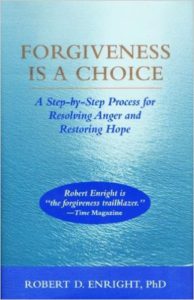Archive for October, 2023
When I was a child, one of my parents was very unfair to me. I dislike the thought of forgiving because it will remove me from the victim role. I realize that may seem strange, but all I know is my victim identity. Furthermore, I’m not quite ready to exonerate my parent for what happened to me. Could you please provide me some context on this?
You are not alone in finding change tough; many people find it difficult as well. Even if it is painful, you appear to feel secure in your current victim position. In the long term, adopting the identity of a survivor or even a thriver could be beneficial for you. Are you prepared to take a chance on temporary uneasiness in order to obtain this new, potentially healthier identity?
When you forgive your parent, you likely will experience healing You also give your parent another chance when you forgive.
I feel like I’m being asked to forgive too much when I say yes. I am not all that exceptional; forgiveness is for all the holy people in the world. Do you think it would be okay if I just moved past this forgiving thing and carried on with my less-than-perfect life?
Forgiveness, according to the late Lewis Smedes, is reserved for individuals who are not perfect. Nobody is born with the ability to forgive well. We become more adept at understanding and extending forgiveness as we gain experience. Therefore, even if I’m a flawed person, I urge you to start small on the path to developing effective forgiveness.
If someone hasn’t harmed me directly, can I still forgive them? As an illustration, one of my students was intentionally injured by another student. I work as a teacher. Can I forgive the person who mistreated a student I respect for his integrity and tenacity?
You speak of what some philosophers refer to as secondary forgiveness. Put another way, you have suffered more by someone else’s wrongdoing toward a significant other than from it personally. You have the ability to forgive if something unfair happens to you and causes you pain. This can even happen if you are injured even though you don’t know the victim or victims. This is an illustration of tertiary forgiveness: for example, your nation’s leader enters what you consider to be an unfair conflict with a another nation. If you choose to forgive the leader, then you can.
You discuss both pursuing justice and being forgiving at the same time. Since I’m Asian, I know that asking one’s own parent for justice is utterly insulting. Even thinking about forgiving a parent is challenging since it implies that this parent is immoral, which is something I have been raised to never do in my society. What happens next?
It’s crucial, in my opinion, to draw a line between criticizing the parent and accepting that everyone makes mistakes. Being imperfect is not a reason for condemnation. It follows that your parent will occasionally make errors or even do the wrong thing if you are able to accept that they are fallible. After that, you can pardon while being aware that this is not meant to be disrespectful or judgmental. It’s actually an effort to regard your parent as valuable people in spite of their flaws. This, in my opinion, shows respect for the parent as a deserving individual.
That being said, we now have to address the problem of never approaching a parent to request a behavior modification. It seems to rely on how you go about doing it. By adhering to the principles in the opening paragraph, you can approach a parent in a helpful manner rather than an accusing one. Let’s say your parent consistently treats you harshly. Is it possible for you to say something along the lines of, “Yes, I will try to do better.” I sincerely hope that you will recognize the goodness in me.” Put differently, you are highlighting an aspect of yourself for the parent to see. That is not then correcting your parent.
On Contemplating the Forgiveness Process to “Do No Harm”
 There is a part of the forgiving process that we have described in two distinct publications, The Forgiving Life and Forgiveness Is a Choice, where we ask the forgiver to “Do no harm” to the one who has been unfair. In actuality, the concept of “Do no harm” serves as a bridge to the much more challenging task of loving someone who has wronged you. Even though it’s an earlier and purportedly simpler step in the process, “Do no harm” is anything but simple.
There is a part of the forgiving process that we have described in two distinct publications, The Forgiving Life and Forgiveness Is a Choice, where we ask the forgiver to “Do no harm” to the one who has been unfair. In actuality, the concept of “Do no harm” serves as a bridge to the much more challenging task of loving someone who has wronged you. Even though it’s an earlier and purportedly simpler step in the process, “Do no harm” is anything but simple.
 Three things are meant by “do no harm”: 1) Don’t try to deliberately hurt the person who offended you (such as being impolite); 2) Don’t do covert harm (such as sneering, ignoring at a gathering, or remaining impartial toward this one who shares personhood with you); and 3) Don’t hurt other people because of your inner discontent from the one who was unfair to you. Stated differently, it is surprisingly simple to channel your resentment toward Person X onto Persons Y and Z. Perhaps it is a sign that you are projecting anger from a past encounter onto your present interactions if people have to inquire, “What is wrong with my friend today?”
Three things are meant by “do no harm”: 1) Don’t try to deliberately hurt the person who offended you (such as being impolite); 2) Don’t do covert harm (such as sneering, ignoring at a gathering, or remaining impartial toward this one who shares personhood with you); and 3) Don’t hurt other people because of your inner discontent from the one who was unfair to you. Stated differently, it is surprisingly simple to channel your resentment toward Person X onto Persons Y and Z. Perhaps it is a sign that you are projecting anger from a past encounter onto your present interactions if people have to inquire, “What is wrong with my friend today?”
It’s wise to assess your level of resentment at these moments and consider who you should forgive today. Consider asking yourself: As I offer forgiveness, am I “doing no harm”? Because of what I am going through, am I exercising caution so as not to hurt innocent people?
I’m offering you a challenge today: Don’t hurt anyone today. Do the same tomorrow. Do it the day after that.
![]()



